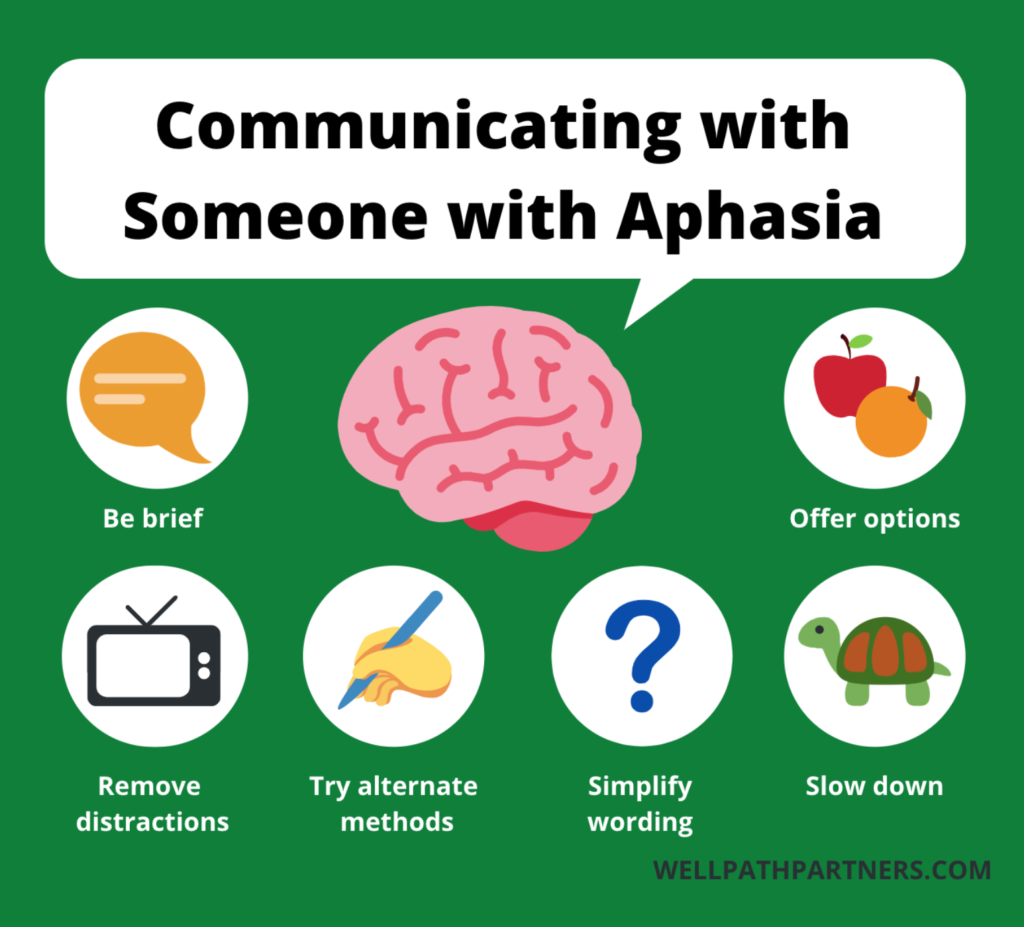
According to the National Aphasia Association, aphasia is an acquired communication disorder that impairs a person’s ability to process language. This means patients with aphasia struggle to express and understand written and spoken language. Aphasia often occurs suddenly after a stroke or head injury or the disorder can develop slowly from a growing brain tumor or disease. Once the underlying cause is treated, the main treatment for aphasia is speech therapy in order to retrain cognitive skills for communication.
Communication is an important part of every human life. Even if a senior may struggle to engage in conversation, those close to them should still speak to them in a respectful manner. Using special communication tricks can help seniors feel less isolated and more connected with those around them. While every case is unique with their own symptoms and needs, there are several things any caregiver or loved one can do to minimize stress when trying to communicate:
- Reduce distractions– Try and remove extra distractions from the room like television, music, or loud conversations in the background.
- Do not rush them- Give time to process what they are trying to say. Give them the chance to speak for themselves and only chime in when asked.
- Try alternative methods- Recalling words can be difficult. Encourage using gestures, descriptions, or even drawing things out.
- Simplify questions- Avoid asking for specific details by using yes and no questions.
- Offer them options- In some cases, the person may not be able to say a word but it’ll be helpful to hint at particular word choices to help them get their point across.
- Be brief- Repeating oneself may be necessary. It may be helpful to speak in shorter, less complex sentences.
- Slow down- Especially when giving instructions, it is important to slow the rate of your speech and provide directions at a rate of one or two steps at a time.
Every patient has their own unique situation and needs. Some patients may need more time to rehabilitate. While some patients could improve over a period of months or even years, others may never fully recover. Regardless of the case however, one of the most important things to focus on is helping them maintain their quality of life. Maintaining communication can significantly help anyone with aphasia rehabilitate. WellPath Partners has a variety of resources for specialized living facilities for seniors with specific needs. Residential board and care homes, assisted living communities, and some nursing homes are special senior living facilities designed to offer more personalized care for aging loved ones.
WellPath Partners is your senior resource referral guide. Follow us on ALL social media platforms and join us weekly for more content and public health discussions.
By Prithvi Chauhan
